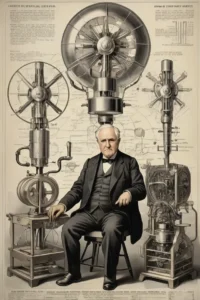The Federalist Papers stand as one of the most significant contributions to American political thought, offering a profound insight into the principles and framework of the United States Constitution. Written in the late 18th century, these essays were not just a response to the political challenges of the time but also a visionary blueprint for building a strong, unified, and enduring nation. Let’s delve into the history, purpose, and enduring legacy of The Federalist Papers.
The Origins of The Federalist Papers
The Federalist Papers were a series of 85 essays written between 1787 and 1788 by Alexander Hamilton, James Madison, and John Jay under the pseudonym “Publius.” Their purpose was to advocate for the ratification of the newly proposed U.S. Constitution, which was designed to replace the weaker Articles of Confederation. At the time, the Constitution faced significant opposition from Anti-Federalists, who feared that a strong central government would encroach on individual liberties and state sovereignty.
Hamilton, Madison, and Jay sought to address these concerns by systematically explaining the necessity of a robust federal government and how the Constitution would achieve a balance between power and liberty. These essays were initially published in newspapers in New York to persuade citizens and state legislators to support ratification. Over time, they became essential reading for anyone seeking to understand the principles underlying American governance.
Key Themes in The Federalist Papers
The Federalist Papers cover a wide array of topics, but several key themes emerge that continue to resonate in modern discussions about governance:
1. The Need for a Strong Central Government
One of the primary arguments in The Federalist Papers is that a strong central government is essential for maintaining unity and stability in a large and diverse nation. The authors argued that the Articles of Confederation had failed because they granted too much power to individual states, leading to disunity and inefficiency.
For example, in Federalist No. 23, Hamilton emphasized the need for a government capable of providing national defense, regulating commerce, and ensuring public safety—functions that could not be effectively managed under the Articles.

2. Checks and Balances
The Federalist Papers also explain how the Constitution’s system of checks and balances prevents any one branch of government from becoming too powerful. Madison’s Federalist No. 51 famously states, “Ambition must be made to counteract ambition,” highlighting how the separation of powers ensures accountability and protects individual liberties.
3. The Importance of a Union
In essays such as Federalist No. 10, Madison discusses the dangers of factions—groups motivated by self-interest rather than the common good—and argues that a large republic is better equipped to manage these divisions than smaller, more fragmented governments. A united nation, he contended, would be more resilient against internal conflicts and external threats.
4. Federalism: Balancing State and National Power
The authors were careful to address concerns about state sovereignty. They argued that federalism—a system where power is shared between national and state governments—would allow for local autonomy while ensuring national cohesion.
The Legacy of The Federalist Papers
Though written over two centuries ago, The Federalist Papers remain highly relevant today. They are frequently cited by legal scholars, historians, and Supreme Court justices as authoritative interpretations of the Constitution. Their influence extends beyond the United States, serving as a model for other nations drafting constitutions or transitioning to democratic governance.
Moreover, these essays provide timeless lessons about governance, human nature, and the challenges of balancing freedom with order. They remind us that democracy requires vigilance, compromise, and an unwavering commitment to justice and equality.
Frequently Asked Questions (FAQ)
Q: Who wrote The Federalist Papers?
A: The Federalist Papers were written by Alexander Hamilton, James Madison, and John Jay under the collective pseudonym “Publius.”
Q: What was the purpose of The Federalist Papers?
A: The essays were written to persuade New York citizens and legislators to ratify the U.S. Constitution by explaining its principles and addressing concerns about a strong central government.
Q: Why are The Federalist Papers important?
A: They provide critical insight into the framers’ intentions behind the Constitution and serve as foundational texts for understanding American political philosophy and constitutional law.
Q: What are some of the most famous essays in The Federalist Papers?
A: Some notable essays include Federalist No. 10 (on factions), Federalist No. 51 (on checks and balances), and Federalist No. 78 (on judicial review).
Q: Are The Federalist Papers still relevant today?
A: Absolutely. They are frequently referenced in legal debates, academic discussions, and Supreme Court rulings as an authoritative interpretation of constitutional principles.
Conclusion
The Federalist Papers are more than just historical documents; they are a testament to the vision and foresight of America’s Founding Fathers. By articulating the principles of federalism, checks and balances, and unity, these essays laid the foundation for a nation that continues to strive toward “a more perfect union.” Whether you’re a student of history or simply a citizen seeking to understand the roots of American democracy, The Federalist Papers remain an invaluable resource—a true blueprint of a nation.





